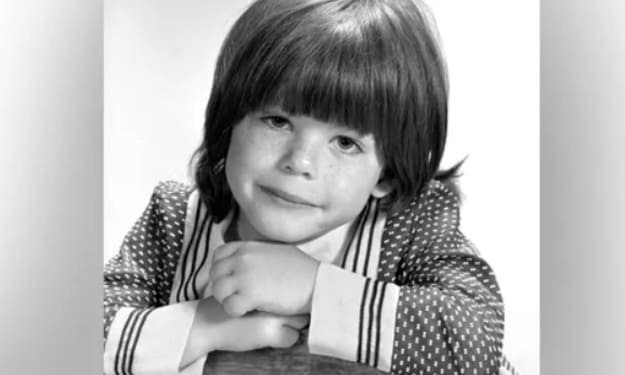BOOK REVIEW: Joan Didion – The Year of Magical Thinking
Joan Didion is one of the most prolific journalists and fiction writers of our time, and I’m ashamed to say I only found out about her two weeks ago. In yet another glib, pandemic-inflicted Netflix peruse, I found a short docu-film about Didion (The Center Will Not Hold), directed/narrated by her nephew, film-maker Griffin Dunne.

In her younger years, Didion was a powerhouse who wrote for large publications such as Vogue whilst steadily building up a repertoire of her own non-fiction and fiction works, as well as collections of observant essays on the rapidly changing political and social cultures around her. She was renowned as a trailblazer for her progressive and reflective attitudes, as evidenced by her writing on the case of the Central Park Five. She examined the racial bias which contributed to the furore of the case and bluntly acknowledged the failures of parties involved, using her voice to address the injustices of her time.
Didion is an 85-year old widow now, and still wields her words with power. Didion’s musings on the year following the unexpected deaths of both her husband, acclaimed author named John Gregory Dunne, and shortly thereafter, her only daughter (Quintana) led to The Year of Magical Thinking. Of all her works, I ordered the aforementioned title and Blue Nights, Slouching Towards Bethlehem and Where I Was From.
The Year of Magical Thinking was where I began.
This novel is hardly a “manual”, more a reflection on the thoughts and behaviours a grieving individual moves through during bereavement. It’s candid, brutal, poignant and stirring for the reader, especially so if they relate to the topic on a personal basis.
Didion states at the beginning of the novel, “Grief, when it comes, is nothing we expect it to be.” (p.26). I understood this to mean that, despite any amount of research, there’s truly no apt preparation for the experience. Ominous and unpredictable, it seizes people in a way that’s debilitating. She observes that, “Grief comes in waves, paroxysms, sudden apprehensions that weaken the knees and blind the eyes and obliterate the dailiness of life.” (p.27), and reflects on the physiological symptoms of disruption in the days following John’s death. A loss of appetite. The slow, creeping feeling of nausea. A state of disbelief, triggered by the realisation of her aloneness in bed: “There was a leaden feeling. It was the same leaden feeling with which I woke on mornings after John and I had fought. Had we had a fight? What about, how had it started, how could we fix it if I could not remember how it started?” (p.31).
Joan and husband John, partners in crime.
There’s a remarkable depiction of the ordinary and arbitrary life we take for granted, and the way that this is utterly destroyed by “the incident”. There’s a notable “before and after”, a sense of disarray and confusion.
So much of Didion’s writing is concerned with depicting the smallness she feels in the absence of her husband, the naivety and childlike wonder of waking every morning as though the whole bereavement were simply a figment of her own imagination. She reflects, “I was thinking as small children think, as if my thoughts or wishes had the power to reverse the narrative, change the outcome.” (p. 35) There’s a real sense of how destabilising grief is, and how even the strongest of figures can be suspended temporarily from their routines by loss. There’s potential for both regression of the mind and regression of the physical body, and a general feeling of directionless in life. Trying to cope with the trauma of loss is akin to facing the world through infantile eyes again, overwhelmed by the magnitude of fleeting feelings and the grandness of a new world without a loved one by your side.
A coping mechanism that Didion took up was reading. She claimed, “In times of trouble, I had been trained since childhood, read, learn, work it up, go to the literature. Information was control.” (p. 44) From this point forth, Didion interweaves her personal emotional journey with her learning from various sources on the impact of grief upon the human body. She also compares bereavement in the animal kingdom against that of the human experience, noting general similarities in behaviour:
“Dolphins, I learned from J. William Worden of the Harvard Child Bereavement Study at Massachusetts General Hospital, had been observed refusing eat after the death of a mate. Geese had been observed reacting to such a death by flying and calling, searching until they themselves become disoriented and lost. Human beings, I read but did not need to learn, showed similar patterns of response. They searched. They stopped eating. They forgot to breathe. They grew faint from lowered oxygen, they clogged their sinuses with unshed tears and ended up in otolaryngologists’ offices with obscure ear infections.” (p. 46-47)
In essence, any sentient being is challenged by grief and is irrevocably changed by its impact, whether immediately following the event or further down the line. Didion proposes that we are stunned into immobility because of our sheltered awareness of death. Historically, death was more common due to the spread of diseases that we now can prevent due to medicinal and technological advancements. Additionally, death occurred in the home, in full view of loved ones, and now “One way in which grief gets hidden is that death now occurs largely offstage.” (p. 61). We are strangers to bereavement until it directly involves us, until we see and feel the fullness of the experience ourselves.
Death is the burden for those who are left behind. Being close to it, you attain a transitory status as being, but not really being. You examine the world through new, jaded eyes. The world examines you with different eyes, also. Didion remarks, “I myself felt invisible for a period of time, incorporeal. I seemed to have crossed one of those legendary rivers that divide the living from the dead, entered a place in which I could be seen only by those who were themselves recently bereaved.” (p. 75). Former identities are destroyed and new ones are forged with labels like “widow” or “orphan”. There’s a vulnerability that distinguishes you from peers who haven’t experienced the gulf of grief, and draws you closer to those who have been there or continue to live there.
One aspect of Didion’s narrative I particularly related to was the spectrum of feelings directed towards the recently bereaved: it’s a very complex aftermath to navigate through. Didion stated of her conflicting sense of responsibility for John’s death and hostility that, “There seemed a sense, however irrational, of having been abandoned. Did I feel abandoned, left behind on the tarmac, did I feel anger at John for leaving me? Was it possible to feel anger and simultaneously to feel responsible?” (p. 161). Also, of her helplessness as the mother of a sickly woman, evidently declining, “She was no longer a child. She was an adult. Things happened in life that mothers could not prevent or fix.” (p. 97).
I think guilt is a common response to death. There’s a lingering question of accountability and the tendency to wonder, “what if?”. When you’ve lost somebody, you can feel guilt for seemingly contributing to the circumstances leading up to “the incident” itself or for the all of the occasions you could have done “more”. For instance, you could have done more to bring unsaid things into fruition or you could have pushed against pride in order to express your love and gratitude more. Maybe you could have spent more time with your loved ones and really appreciated every moment of that invaluable time with them. But at the end of the day, all agonising and focussing on the little things that could have been done will only lead to a futile reflection if nothing is to be gained from it.
Didion talks about the way her grief changes as time passes. She talks of acceptance and a reluctant urge to move forward, as opposed to stagnate in stillness, locked up in grief. It’s a journey that isn’t linear and will undoubtedly bring more trials along the way, but a determination to put the “live” in living and make peace with the past.
In a way, I wish I’d have found Didion earlier, and that somebody would have reached out with her words as a recommendation during the many bereavements my family have experienced over the last ten years. Simultaneously, I wonder what impact Didion would have had on a young girl who hadn’t yet lived through the melancholy of bereavement. Would I have learned much? Would her wisdom have resonated so soundly?
I look forward to getting through her other works: I feel they’ll only cement my respect for her unique capacity to articulate difficult emotions and turbulent themes so beautifully. If anybody has recommendations in a similar vein to that of Didion, please send them my way!
About the Creator
Pip Yed
Hi, there! I’m Ayesha, but you can call me Pippa.
I’m an editorial associate who spends free time reading and writing avidly. For music collaborations, publication opportunities & general enquiries, please contact: [email protected]





Comments
There are no comments for this story
Be the first to respond and start the conversation.